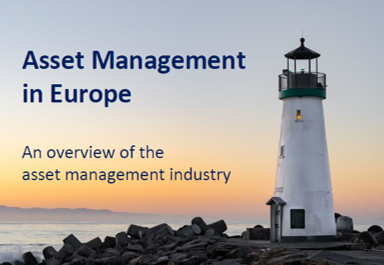This memo covers investments in collective investment vehicles (CIV) in contractual, trust, or corporate form (simply referred as funds) from corporate and institutional investors acting on their own account (e.g. banks, life insurers, industry companies, etc.) and the accounting treatment of such investments under the upcoming IRFS 9 rules. While IFRS 9 contains many positive evolutions, many of our members have been warned by their client investors that IFRS 9 would change their attitude towards investing in funds.
Taxation & Accounting
EFAMA discusses all relevant tax topics with importance to the European asset management industry, such as Tax transparency packages or EU FTT, OECD topics including several actions inserted in the Base Erosion and Profit Shifting (BEPS) project, and all kinds of national developments in case they have an impact on regulated EU investment funds. The focus lays on mainstream funds but we may discuss alternative investment fund tax-related issues, if they are of broad relevance.
IFRS 9 phase 1 implementation will have a negative impact on asset management industry
EFAMA response on OECD Public Discussion Draft on the treaty entitlement of Non-CIVs
EFAMA is grateful for the opportunity to comment on the OECD Public Discussion Draft related to concerns received by the OECD on previous discussion drafts related to the Report on Action 6, as to how the new provisions included in the Report on Action 6 could affect the treaty-entitlement of nonCIVs. We agree with the aim of the discussion draft to clarify any concerns in relation to the discussion concerning the treaty entitlement of CIVs / Non-CIVs.
EFAMA Position Paper on Draft Anti-Tax Avoidance (ATA) Directive
EFAMA fully supports the aim of eliminating tax abuse enshrined in the draft Anti-Tax Avoidance (ATA) Directive which the European Commission published on 28 January 2016. EFAMA is the representative association for the European investment management industry. EFAMA represents through its 26 member associations and 61 corporate members EUR 21 trillion in assets under management of which EUR 12.6 trillion managed by 56,000 investment funds at end 2015.
EFAMA Comments Debt-Equity Bias Reduction Allowance (DEBRA)
EFAMA supports the Commission’s efforts to encourage more companies to finance their investment through equity contributions rather than debt financing.
The Commission decided to follow a policy option that will enable the deductibility of an allowance on equity financing costs complemented by a rule to limit the deductibility of interest on debt financing instruments.
EFAMA replied to the OECD Pillar One – Amount A: Regulated Financial Services Exclusion public consultation
EFAMA replied to the OECD Pillar One – Amount A: Regulated Financial Services Exclusion public consultation. Aiming to change the views of those members of the OECD/IF that still maintain that asset managers should not be excluded from Amount A.
In this comment paper, EFAMA is taking the opportunity to:
EFAMA's comments on EC’s Pillar Two proposal
With the release of this proposal, the Commission is replicating the OECD / BEPS Inclusive Framework (OECD) Pillar Two Global Anti-Base Erosion (GloBE) Model Rules that came live in December 2021 and addresses how Member States will implement them in a coherent and consistent way across the EU. The work of the Commission and the alignment with the work of the OECD / BEPS Inclusive Framework are to be welcomed.
Annual Review June 2019-June 2020
"It gives me great pleasure to provide you with an overview of our activities since our Annual General Meeting in Paris last year. While we were very much looking forward to hosting you all in Brussels this week, the current crisis and associated travel restrictions has forced us to improvise and turn our meeting into a virtual AGM.
Asset Management Report 2019
The EFAMA Asset Management in Europe report aims at providing facts and figures to gain a better understanding of the role of the European asset management industry. It takes a different approach from that of the other EFAMA research reports, on two grounds. Firstly, this report does not focus exclusively on investment funds, but it also analyses the assets that are managed by asset managers under the form of discretionary mandates. Secondly, the report focuses on the countries where the investment fund assets are managed rather than on the countries in which the funds are domiciled.


































